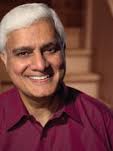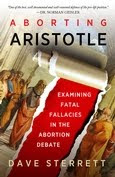 Here are this week's recommended apologetics links. Enjoy.
Here are this week's recommended apologetics links. Enjoy.• What is the unborn?
• Don't Buy "The Science Guy"
• Dangers of the Lazy Apologist
• Apologetics: Who Need's It?
• 5 Questions To Ask of a Book
• Jesus on the Problem of Evil
• The MA in Apologetics at HBU
• 'Apologetics in 3D' on Video
• Ravi Zacharias Website Redesign
• 31 Actions to Advance Apologetics
• C. S. Lewis’ Approach to Apologetics
• 50 Important Philosophical Questions
• Sign Up for these Great Webinars
• Darwin or Design? Conference Sept 2012
• Just downloaded: Columbine by Dave Cullen
• Angry Anonymous Atheist’s Custom Keyboard
• Lydia McGrew on identifying intelligent agents
• Frank Turek Interviews William Lane Craig (MP3)
• Stephen Law, his evil god, and radical skepticism
• Apologetics Conference! Equip & Engage: New England 2012
• Top Ten Things Augustine Contributed to Philosophy, Part II
• Apologetics Conference: Contending With Christianity's Critics
• Resources to Answer Bad Arguments Against Intelligent Design
• Do extraordinary claims require extraordinary evidence? (Part 1)
• Has The New Testament Been Substantially Edited Since It Was First Penned?
• Brian Auten interviews philosopher Robin Collins on the fine-tuning argument
• Bill Nye the Intolerant Science Guy: "Your Kids" Need to "Believe in" Evolution
Apologetics 315 is a registered 501(c)(3) non-profit. Would you support us monthly?
• Shopping via Amazon? If you use this link, a bit of your purchase goes to fund Apologetics 315. Thanks for those of you using the link, as it helps Ap315.
• Would you like to help with interview transcription? If so, contact Ap315 here.
Get these sorts of links and more by following on Twitter.• Would you like to help with interview transcription? If so, contact Ap315 here.
Or just add this feed to your RSS reader.
For daily post links, please follow on Facebook.





























